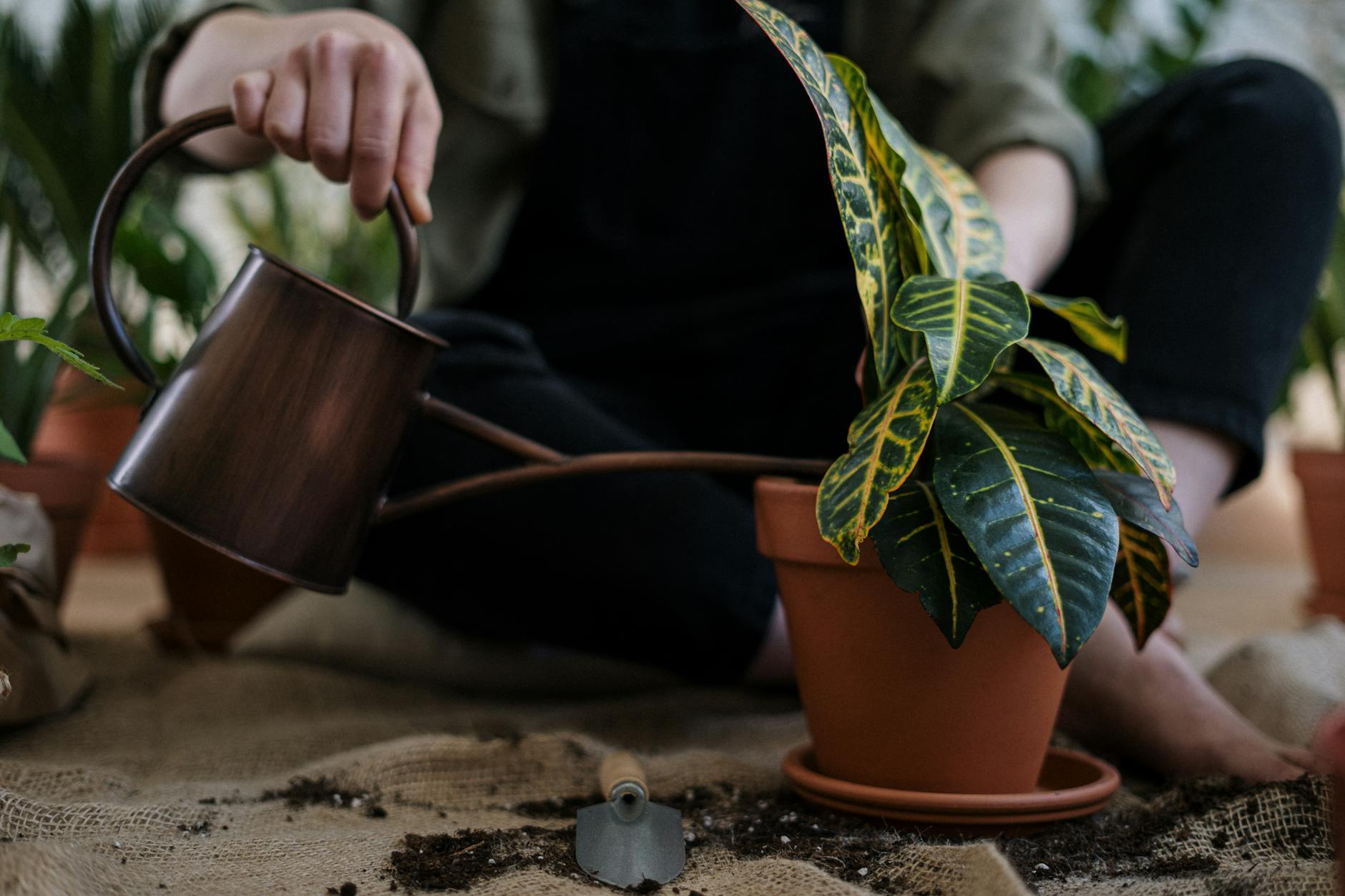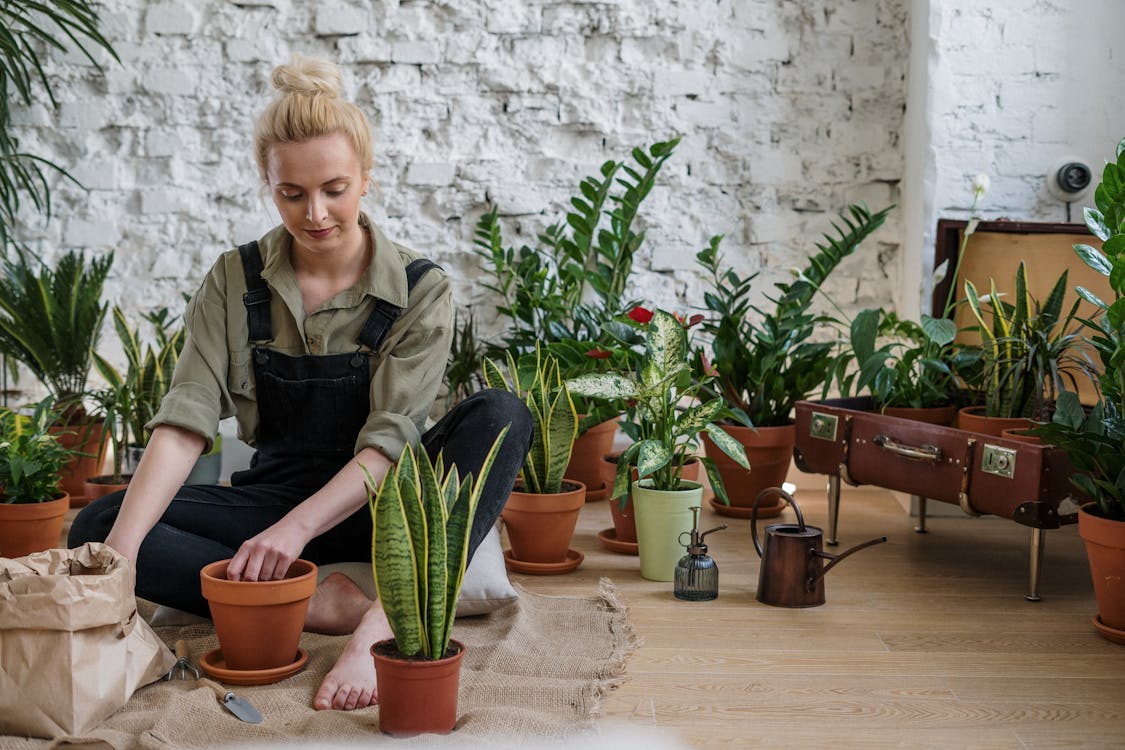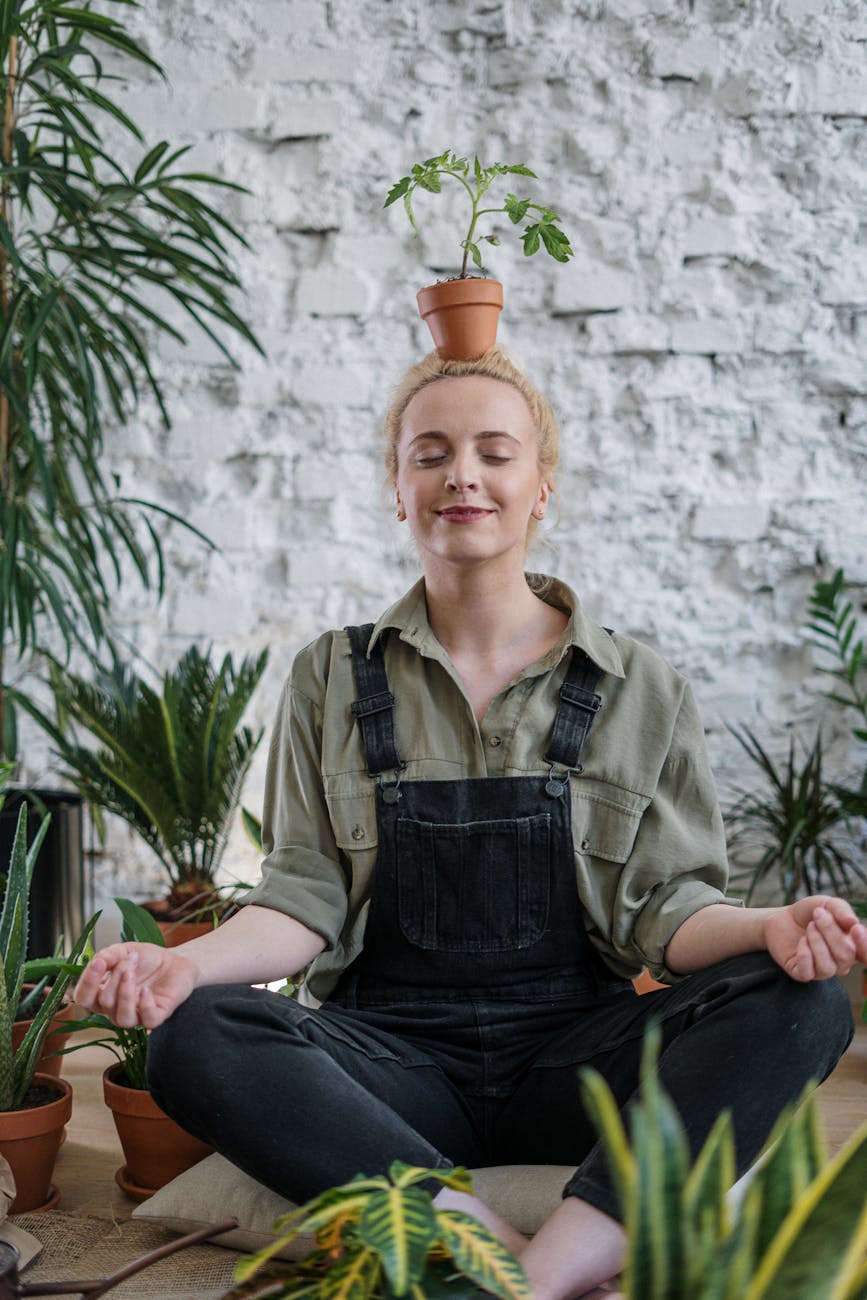From reconnecting with the earth under your feet to showing gratitude to the flowers you’ve grown, we’ll explore how gardens can improve our wellbeing.
In modern life, we can find ourselves feeling out of touch with the natural environment but, by spending time in a garden, it’s easy to discover a deep connection with life on Earth, and it all starts with the soil just beneath your feet.
When you understand what a plant needs to flourish, you can begin to appreciate all the intricacies and connectivity between the Earth and everything around you. This holistic understanding can provide an enormous sense of purpose and appreciation of how everything within the garden is linked – and that includes you.
Living in harmony
 For plants to thrive, we need to get to know what helps them to grow. The foundation of most garden plants is the fascinating mix of broken-down rocks, organic material, living organisms, air, water, and mineral particles that all work together to make the soil that you plant in. When you touch the ground, you come into contact with the very planet that we live on. Furthermore, the Earthing Theory (the concept of transferring the Earth’s energy to the body, through contact with the Earth) has shown how this simple action has enormous benefits, helping to bring your body into balance.
For plants to thrive, we need to get to know what helps them to grow. The foundation of most garden plants is the fascinating mix of broken-down rocks, organic material, living organisms, air, water, and mineral particles that all work together to make the soil that you plant in. When you touch the ground, you come into contact with the very planet that we live on. Furthermore, the Earthing Theory (the concept of transferring the Earth’s energy to the body, through contact with the Earth) has shown how this simple action has enormous benefits, helping to bring your body into balance.
Not only that but there are many beneficial organisms that you’ll make contact with as you touch the soil with your hands, such as microbes known as Mycobacterium vaccae that can stimulate serotonin production, which in turn helps us to feel relaxed and happy. In effect, they’re acting as an antidepressant.
Soil also provides essential habitats for numerous organisms: fascinating fungi, bacteria, insects, and wildlife. It is vital to life on Earth. Did you know there are more living organisms in a handful of soil than humans on Earth? It might not look pretty, but it’s what’s beneath the surface that counts.
By creating healthy soil, not only will your flowers bloom and your vegetables taste delicious, but you will also be contributing to the evolution of life on Earth. Yes, right there, just under your feet. Next time you are out in your garden, why not try taking your shoes off? Feel the natural, negative charge from the core of the Earth, helping to relax you and bring your mind, body, and soul into balance.
Show gratitude to your garden

Your garden is alive, even when you think it isn’t. Even if your borders are bare and your grass is patchy, there is so much life around you; even in the depths of winter, the garden is a hive of activity beneath the soil. Plants, trees, and wildlife continue to work, doing their very best to make sure the planet’s ecosystems survive.
How often do you show gratitude directly to the plants, shrubs, trees, and wildlife in your garden? They are all working with you to grow a biodiverse space that you can be proud of, where you relax, have fun, and where you can just be you.
It’s as easy as simply saying ‘thank you’ to anything that is part of your garden. To the overgrown nettles for the plant feed they become, to the gooseberry bushes that produce fruit year after year, to the tree that provides shade and shelter for you and birds, to the herbs that nourish your body, the wisteria for its abundance of lilac flowers that make you smile, the blue tits that nest each year in the bird box and for the joy they bring when the chicks hatch. There is an abundance to be grateful for in your garden every day, so show your appreciation by saying ‘thank you’ and nurturing everything to the best of your ability, so your garden continues to thrive.
Appreciating your hard work
 As your garden begins to bloom, allow yourself the time and space to take moments in the garden alone so you can feel a genuine connection to the natural world and harness pride and joy at what you have achieved. It doesn’t matter how big or small your efforts have been, every single one counts.
As your garden begins to bloom, allow yourself the time and space to take moments in the garden alone so you can feel a genuine connection to the natural world and harness pride and joy at what you have achieved. It doesn’t matter how big or small your efforts have been, every single one counts.
When other people show us appreciation, it feels good. But we often forget to appreciate just how much we deserve it from ourselves.
When you garden, there are many skills that you use, most likely without even realizing it. As a gardener, you are also a scientist and a naturalist, but you are actually applying geography skills, philosophy, art, maths, and much more. You are becoming more multi-talented with every day you step outside and get your hands dirty. You are a considerate neighbor for making your neighborhood a more beautiful place, and you are a great friend to the natural world.
You can also be the person who spreads the word about the rewards and benefits of gardening. One way to do that is to let other people into your garden to appreciate all of your hard work. Not only might it inspire them to try gardening, but you could share knowledge and get gardening tips from other gardeners. When someone appreciates your garden by visiting and enjoying being outside in the space, commenting on the colors, how lovely your flowers are, or how pretty the pots look on the patio, they express admiration for everything you have done. It’s not just friends and family that you could invite over – perhaps consider a coffee morning for neighbors, a charity garden afternoon tea, or even an open garden day.
By opening up, sharing, and accepting appreciation for your hard work in the garden, you will also be able to find gratitude for yourself on a much deeper level than you ever have before.
Practice this exercise to celebrate your achievements in the garden.
- Put your feet up, grab a warm drink, notebook, pen, and a clean jar or a tin.
- Start to reflect on your year and all of the achievements you’ve had in the garden.
- For everything you think of that didn’t work out, think of two positive things you achieved.
- Write each positive thing you achieved on a separate piece of paper, also noting down how you made it happen.
- Put each achievement note into your jar or tin.
- When you have finished, go for a walk in the garden and reinforce the positive achievements by thanking yourself out loud (or in your head if you prefer).
- If you have times when you are struggling to appreciate yourself, take out an achievement note from the jar or tin and read it to yourself. “

